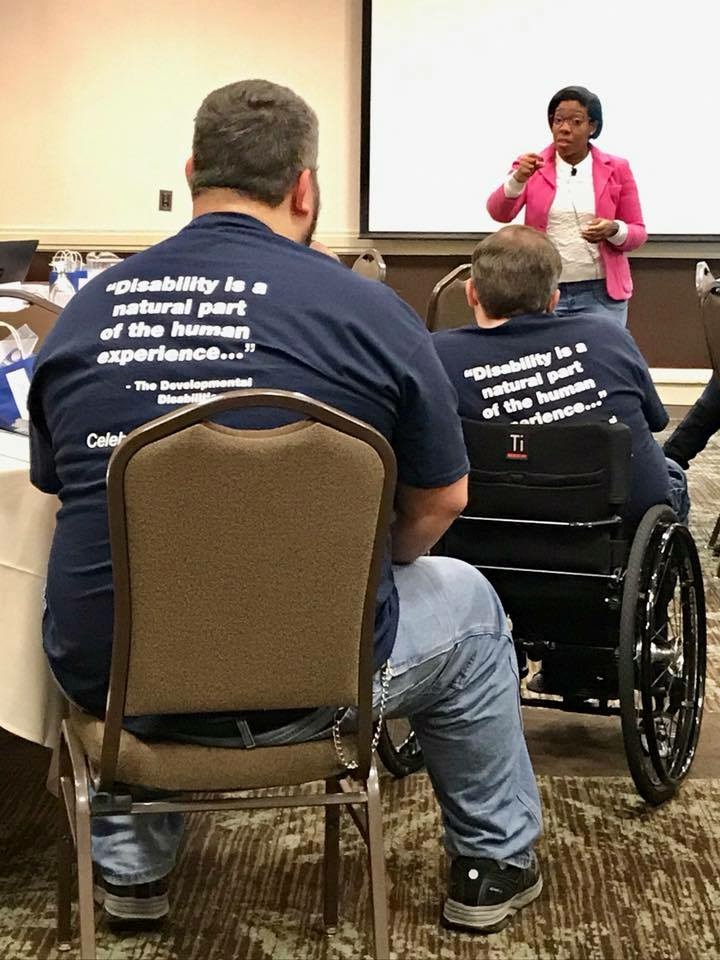How to Become a Public Speaker
/As a US culture, i believe we are obsessed with several things - gadgets (raises hand), being “busy”, accelerated success, claiming entrepreneurship when we’re un-hireable, and fame, sometimes also presented as insta-famous.
I have also learned that we are obsessed with validating titles and “glory without the story”. This usually leads to the a question, I’ve received a time or ten, “how can I do what you do?” While that means varying things based on the encounter, as of late, it has translated into, “how can I become a professional speaker?”
Note: everyone is NOT like the above but you know me, I have to be exaggerative.
I am indeed a professional speaker. This means that I speak in front of audiences for a fee, almost exclusively, with some exceptions - usually speaking to individual college classes. With that said, speaking is a byproduct of my career in communications and my life’s role as an entrepreneur.
On its head, that question is pretty harmless. However, it usually comes before the person has asked themselves a few questions first. This means that a person is looking for a quick solution and roadmap rather than working through their own bumpy problem. Below, I’ve provided some context and self-analyzing questions to consider before you become a public or professional speaker.
Do people need to hear your topic? It’s time to research and analyze. Before you jump out there with both feet, you have to determine if the topic (your expertise) is needed in the market. Take the time you need to 1) learn more about your potential market - other speakers, the audience you’d like to connect with, and how you can frame your expertise differently; 2) study other speakers. Believe it or not, it may be natural but it is not easy to get up and look at people who stare at you like you have three eyes and two heads. You have to learn your cadence, learn how to equalize a space, learn your movements and distractors, and learn how to open and close; and, 3) get hyper-specific about your topic. Yes, you know all about work/life balance but do you need to share every single nugget in a one hour session? Maybe not. Get intentional about outlining what makes you an expert - what stories you can share, how personal it is, or what solution you’ve developed.
Perspective: listening to music and watching faith leaders during a service are both good ways to understand the intro, climax, and resolve. Study them to find your own style.
Are you flexible enough? One of the craziest things that I encounter is how rigid people are about how they want their dreams to manifest. I want to be a model but I’m not willing to be in the gym, go to evening fittings, or work with specific photographers. Wait! Say what? If you’ve been in the game 30 years, you likely have the clout to say the things that you want. But if you’ve been aspiring to speak for five years or less, cut it out. You might not get paid the first year. If you get paid, it might be a love offering. Be humble and accept. Give yourself the room to grow or be blackballed.
Perspective: I am a firm believer in boundaries and then rules that accommodate those boundaries. However, you have to give yourself room to set those boundaries; they don’t happen without earning the space to set them.
There are dozens of books - some great and others mediocre; hundreds of courses - some worth the time to watch the webinar and others should pay you to attend; and thousands of people / practitioners - some that actively practice what they preach and others who share theories and concepts.
For the record, there is a place and space for each of these categories. To have a supply there is likely the demand to fulfill. There is no hate, shade, or reality show tea about it.
Here are your questions.
Have I mastered a topic? A question I’ve began asking during interviews in my office is, “what’s one topic you know the most about in the whole world? Now share five things about it that isn’t commonly know.” This is ONLY scratching the surface but it speaks to ones ability or inability to retain and teach a topic. If you can’t just yet, that’s ok. Keep practicing. Keep working towards it. All of this leads to mastery. To really master something you have to have studied, practiced, failed, succeeded, and pivoted. I can’t imagine there being a gymnast that has never fallen and broken a few bones. They didn’t instantly show up at the Olympics. So I ask, what topic do you know really well? It can be super strategic, very deep and thoughtful, or it can be very tactical, simple to deliver.
Perspective: you can only show up as a subject matter expert, when you can complete, repeat, and teach.
Do people know that you have an expertise? This seems like the simplest but the most difficult to accomplish. While it’s easy to post the latest filter we’ve discovered for our selfie on social or blog about the most recent reality show, we rarely do a great job of displaying our expertise. Do you have a website that concisely pulls all of your thought leadership articles together? Do colleagues and friends think of you when they are preparing for their company retreat? Do you know the principles of effective networking and sales - both are crucial to getting yourself out there. Bottom line: it’s easy to say you want to do something but not most follow-through. Begin by letting people know that you’re available.
Perspective: People help those who help themselves. If you aren’t putting yourself out there, no one else is going to do the work for you.
Now, what will you do with this information?
Has it helped you?
If it’s stung you, good. Keep going.
If you want to change your outcome, change your perspective.








